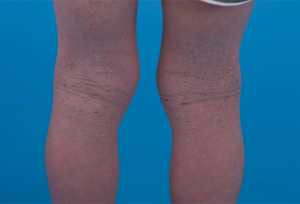MedicalResearch.com Interview with:
Dr. Stephan Weidinger, MD, MaHM
Professor of Dermatology
Christian-Albrechts-Universit
Kiel
MedicalResearch.com: What is the background for this study? What are the main findings?
Response: Relatively little is known about the epidemiology and burden of Atopic Dermatitis (AD) in children, adolescents and adults, however, there is increasing evidence that the disease is highly prevalent also in these age groups. Further, very little is known about the disease severity strata.
Severity, however, largely defines treatment needs. The EPI-CARE (EPIdemiology of Children with Atopic dermatitis Reporting on their Experience) study was a cross-sectional web-based study of the prevalence and burden of AD in both children and adolescents. It was performed globally across Europe, North America (US, Canada), Latin America (Argentina, Brazil, Colombia, Mexico), Asia (Japan, Taiwan), the Middle East (Israel, Kingdom of Saudi Arabia, Turkey, the United Arab Emirates) and Russia, and used very stringent definitions of AD and the same methodology across age groups.
We first analyzed the adolescent data, and it turned out that the prevalence of active Atopic Dermatitis is higher than expected, ranging from 9.29% in the US and 14.7% in Europe. Of note, almost 50% of the adolescents with current AD reported an overall moderate to severe disease activity, and the majority reported a multidimensional burden that includes not only the skin symptoms associated with AD, but also sleep disturbances, symptoms of anxiety/depression, and reductions in quality‐of‐life and productivity. Adolescents also reported a high burden of coexisting atopic diseases that increased with AD severity – 68.6% of those with moderate AD and 81% of those with severe AD reported at least one coexisting atopic disease.
atopic dermatitis substantially affects the life of patients and their families, and this burden is higher with greater AD severity.
(more…)

























